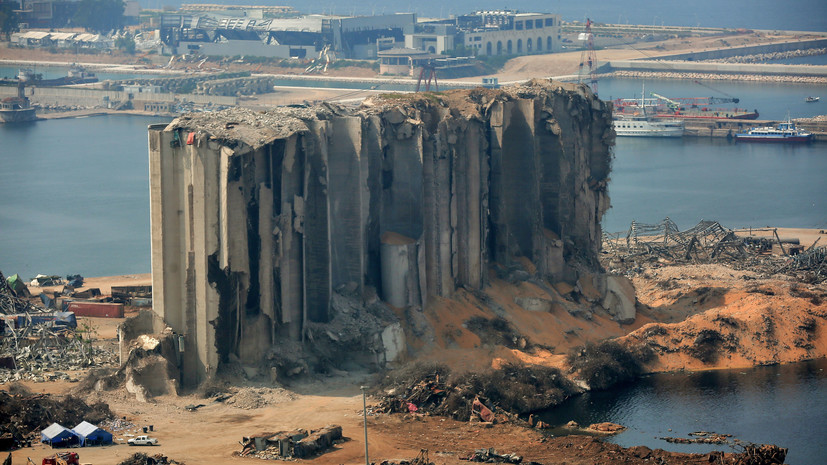Interpol has put two Russians and one Portuguese on the wanted list in the explosion in the port of Beirut in early August 2020, the Lebanese national agency NNA reports.
It is reported that "red notices" at the request of the Prosecutor General of Lebanon were issued for the owner of the ship Rhosus and the captain of the ship, on board of which 2,750 tons of saltpeter was delivered to the port of the Lebanese capital, who had Russian citizenship, and an entrepreneur from Portugal who assessed the warehouse in which the nitrate was stored ammonium, which caused a destructive explosion.
In October, the Lebanese authorities sent a request for the arrest of two Russian citizens to the country's Prosecutor General's Office, which turned to Interpol to issue an international warrant.
At the same time, local media reported that a delegation of investigators and representatives of the country's special services visited Cyprus to meet with the owner of the ship residing there.
The names of the defendants in the case were not named in the last message, but it was previously reported that the ship Rhosus, which sank in 2018, belonged to businessman Igor Grechushkin, and Boris Prokoshev was its captain in 2013.
Prokoshev told TASS about his innocence and intention to defend his interests.
He said that he had not yet received any documents in connection with the Interpol decision.
“I don't know what to do yet.
I will observe the development of the situation, defend the interests on my own: of course, I have no money for lawyers - I live on one pension.
I don't consider myself guilty, ”Prokoshev said.
According to him, the port services of Beirut had copies of documents for the cargo and were notified of its danger, but for several years they made no attempts to export hundreds of tons of ammonium nitrate from the port.
According to the Russian Trade Union of Seamen, in 2013, a vessel flying the Moldavian flag, heading from Batumi to Mozambique, made an unscheduled call to Beirut.
After which the Lebanese authorities detained the vessel due to technical violations of the operation.
The crew of the ship, in turn, applied to the International Federation of Transport Workers with a statement about withholding salaries from the very beginning of the contract.
It is reported that in 2014, the Lebanese authorities began to consider the repatriation of the ship's crew, as well as the sale of the ship itself and its explosive cargo.
Subsequently, the saltpeter was unloaded at the port of Beirut, and the sailors from Russia and Ukraine were released home.
However, by August 2020, in violation of the rules, the dangerous cargo had not been disposed of.
The detonation of saltpeter occurred on August 4, 2020.
The power of the explosion is estimated at about 1.5 kilotons of TNT.
Hassan Diyab, who was the prime minister of the country at the time of the emergency, then said that the incident was caused by improper storage of 2,750 tons of ammonium nitrate in the port for six years.
The explosion killed about 200 people, over 4 thousand were injured.
The city authorities estimated the damage at $ 15 billion. The explosion destroyed many buildings in Beirut, including four hospitals.
A number of states, including Russia, provided assistance to Lebanon after the emergency.
The day after the explosion, the Russian Emergencies Ministry dispatched planes with an airmobile hospital, doctors and rescuers to Beirut.
About 150 Russian specialists were brought to Lebanon to help eliminate the consequences of the explosion.
One of the consequences was a wave of protests that swept across Lebanon.
After these actions, the entire government resigned.
According to media reports, during the investigation of the explosion in the port, a number of high-ranking officials were summoned for interrogation, including Lebanese Acting Prime Minister Hassan Diyab.
Lebanese newspapers reported on the arrest in the bombing case of the former director of the port, Hassan Kreytem, and the head of the customs service, Badri Daher.
We add that in September there were several fires in Beirut, including on the territory of the seaport.
And in October, another explosion occurred in the city, as a result of which four people died.
A fuel oil tank detonated in a warehouse with fuels and lubricants in the residential area of Tariq al-Jedida.
According to other information, there could be diesel fuel or gasoline in that warehouse.
According to eyewitnesses, the detonated equipment was in the basement of a residential building.
The explosion started a fire, the victims of which were four people, about 50 more were injured.

